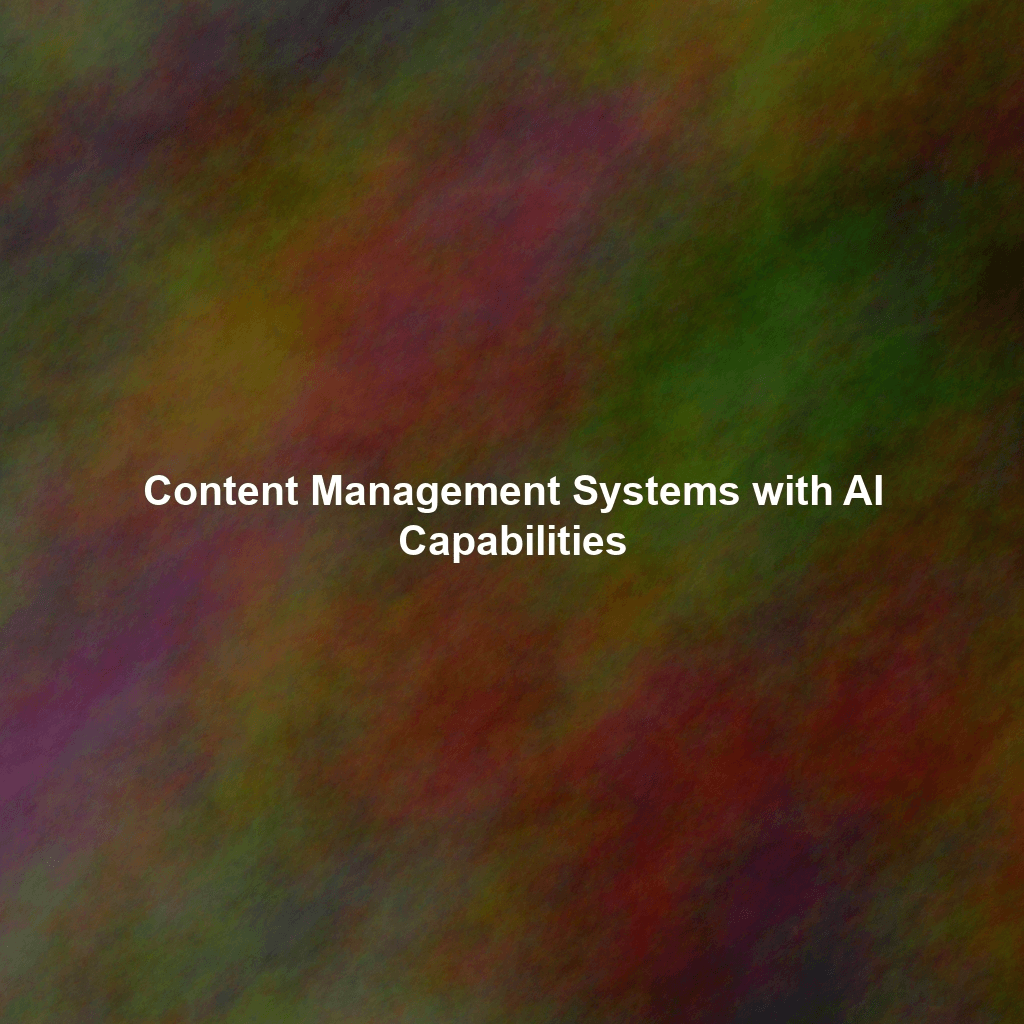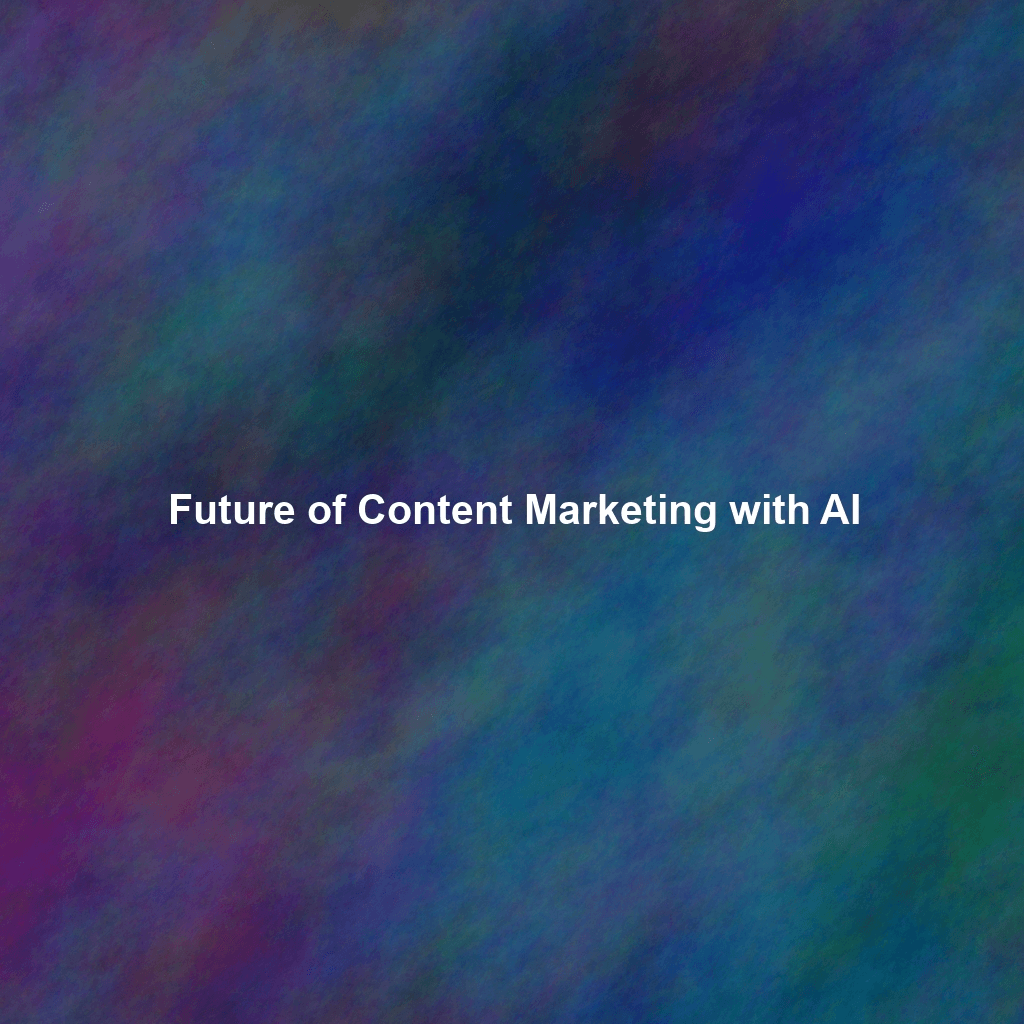Understanding AI-Powered CMS Features
What exactly does an AI-powered CMS do? Let’s break down its key features. These features distinguish them from traditional systems.
AI-Driven Content Creation and Ideation
Stuck in a creative rut? Staring at a blank screen? AI can help. Some AI CMS platforms suggest content ideas. They base these on trending topics, keyword research, and audience analysis. These tools analyze vast amounts of data. They identify content gaps and opportunities. This gives writers a valuable starting point. AI can also assist with drafting content outlines. It generates headlines. It can even compose entire articles based on specific keywords. AI-generated content shouldn’t be published blindly. But it serves as a powerful brainstorming tool. It’s a strong first draft to be refined by human editors.
Intelligent Content Optimization for SEO
Search engine optimization (SEO) is crucial. It drives organic traffic to your website. AI-powered CMS systems analyze your content in real-time. They suggest improvements for SEO performance. This includes identifying relevant keywords. It optimizes meta descriptions. It suggests internal and external links. It ensures content is readable and engaging. AI algorithms also track content performance over time. They identify areas for improvement. This helps you continuously refine your SEO strategy. For more on SEO, Google’s own SEO Starter Guide is an essential resource.
Automated Content Personalization
Generic content rarely connects with individual users. AI enables CMS platforms to deliver personalized experiences. Content is tailored to specific user preferences and behaviors. AI algorithms analyze user data. This includes browsing history, demographics, and purchase patterns. They segment audiences. They deliver content most relevant to each individual. This leads to increased engagement. It results in higher conversion rates and improved customer satisfaction.
Smart Content Analytics and Reporting
Understanding content performance is essential. It helps make informed decisions about your content strategy. AI-powered CMS systems offer advanced analytics and reporting. They go beyond basic page views and bounce rates. These tools analyze user behavior. They identify trends. They provide insights into which content is most effective. AI can also automate report generation. This saves time and effort. For deeper insights into content analytics, explore resources from organizations like the Content Marketing Institute.
Natural Language Processing (NLP) for Enhanced Content Understanding
Natural Language Processing (NLP) is a key component. It’s found in many AI-powered CMS systems. NLP allows the system to understand content’s meaning and context. This enables tasks like sentiment analysis, topic extraction, and content summarization. This enhanced understanding improves search results. It personalizes content recommendations. It automates content categorization. For a foundational understanding of NLP, academic resources like those from Stanford’s NLP Group are highly valuable.
Benefits of Using an AI-Powered CMS
Integrating AI into CMS platforms offers many benefits. These are for content creators and marketers:
- Increased Efficiency: Automate repetitive tasks. Streamline your content workflow.
- Improved Content Quality: Create more engaging and informative content. Use AI-powered suggestions and insights.
- Enhanced SEO Performance: Optimize content for search engines. Drive more organic traffic.
- Personalized User Experiences: Deliver tailored content experiences. Connect with individual users.
- Data-Driven Decision Making: Gain valuable insights into content performance. Make informed strategy decisions.
- Faster Content Creation: Accelerate the content creation process. Use AI-assisted writing tools.
- Reduced Costs: Optimize resource allocation. Reduce the need for manual labor.
- Competitive Advantage: Stay ahead of the curve. Differentiate yourself by leveraging AI’s power.
Examples of AI-Enabled Content Management System Functionality
Here are concrete examples. They illustrate AI’s practical applications in CMS:
- Smart Image Tagging: Automatically tag images with relevant keywords. This is based on visual content analysis.
- Automated Content Summarization: Generate concise summaries of long articles. Use them for social media posts or email newsletters.
- Plagiarism Detection: Identify instances of plagiarism in your content. Ensure originality.
- Readability Scoring: Assess content readability. Provide suggestions for improving clarity.
- Sentiment Analysis: Analyze content sentiment. Ensure it aligns with your brand values.
- Chatbot Integration: Integrate chatbots into your CMS. Provide instant user support and answer questions.
- Dynamic Content Delivery: Deliver different content versions. Base this on user location, device, or other contextual factors.
- Automated Content Migration: Streamline content migration. Move content from one CMS to another more easily.
Choosing the Right AI-Powered CMS
A growing number of AI-powered CMS platforms exist. Choosing the right one can be daunting. Here are some factors to consider:
- Your Specific Content Needs: What type of content do you create? What are your primary content goals?
- Your Budget: AI-powered CMS platforms vary significantly in price.
- Integration Capabilities: Does the CMS integrate with your existing marketing tools and systems?
- Ease of Use: Is the CMS user-friendly and easy to learn for your team?
- Scalability: Can the CMS grow to meet your expanding content needs?
- Vendor Support: Does the vendor offer adequate support and training resources?
- Security: Does the CMS have robust security features to protect your data? For cybersecurity best practices in CMS, refer to guidelines from organizations like the Cybersecurity and Infrastructure Security Agency (CISA).
Research different platforms. Read reviews. Take advantage of free trials. Find the CMS that best fits your requirements.
The Future of AI in Content Management
AI integration into content management is still early. The future holds tremendous potential for innovation. We can expect even more sophisticated AI-powered features:
- Advanced Content Generation: AI that can generate high-quality, original content with minimal human input.
- Predictive Content Analytics: AI that can predict content performance before it’s even published.
- Hyper-Personalized Content Experiences: AI that delivers truly personalized content. It will be tailored to each user’s individual needs and preferences.
- AI-Powered Content Curation: AI that can automatically curate and organize content from various sources.
- Voice-Activated Content Management: The ability to manage your content using voice commands.
As AI technology continues to evolve, it will play an increasingly important role. It will shape the content management landscape. Embracing these advancements will be essential for content creators and marketers. They want to stay ahead and deliver exceptional content experiences.
Conclusion: Embracing the AI Revolution in Content Management
AI is no longer a futuristic fantasy. It’s a present-day reality. It’s transforming how we create, manage, and optimize content. Content Management Systems with AI capabilities offer powerful tools. They help content marketers and creators work smarter, not harder. Embrace these technologies. You can unlock new levels of efficiency. You can improve content quality. You can enhance SEO performance. You can deliver personalized user experiences that drive results. The future of content management is intelligent. It’s time to embrace the AI revolution. Check out contenthurricane.com to see how AI can help you generate high-quality, expert-level content at scale for your WordPress site. #AICMS #ContentManagement #AIinMarketing #DigitalTransformation #ContentStrategy #SEOAutomation #Personalization #FutureOfContent #ContentHurricane #ROI


